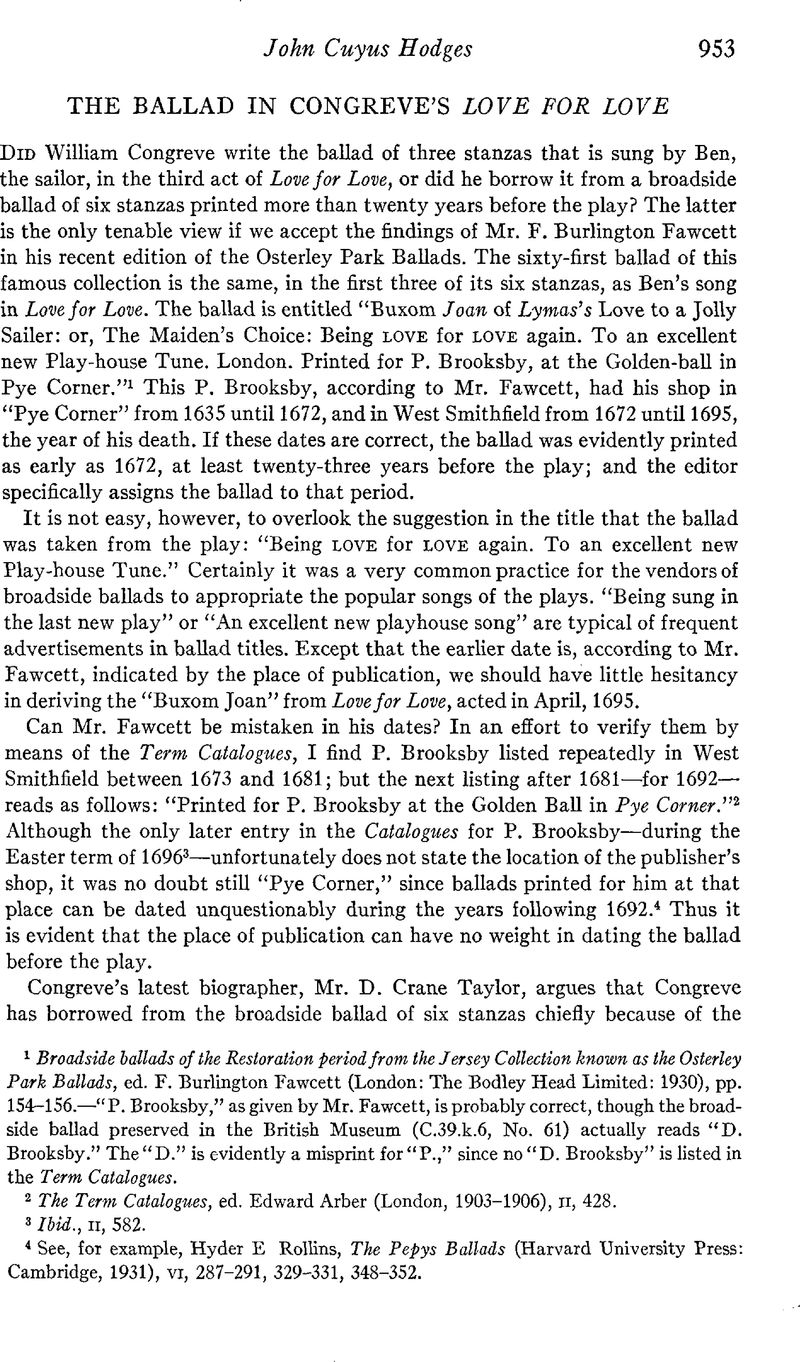No CrossRef data available.
Article contents
The Ballad in Congreve's Love for Love
Published online by Cambridge University Press: 02 December 2020
Abstract

- Type
- Comment and Criticism
- Information
- Copyright
- Copyright © Modern Language Association of America, 1933
References
1 Broadside ballads of the Restoration period from the Jersey Collection known as the Osterley Park Ballads, ed. F. Burlington Fawcett (London: The Bodley Head Limited: 1930), pp. 154–156.—“P. Brooksby,” as given by Mr. Fawcett, is probably correct, though the broadside ballad preserved in the British Museum (C.39.k.6, No. 61) actually reads “D. Brooksby.” The“D.” is evidently a misprint for “P.,” since no“D. Brooksby” is listed in the Term Catalogues.
2 The Term Catalogues, ed. Edward Arber (London, 1903–1906), ii, 428.
3 Ibid., ii, 582.
4 See, for example, Hyder E Rollins, The Pepys Ballads (Harvard University Press: Cambridge, 1931), vi, 287–291, 329–331, 348–352.
5 William Congreve (Oxford University Press, 1931), pp. 77–79. Mr. Taylor reprints the last three stanzas of the broadside ballad.
6 Ibid., p. 79.
7 See F. Erlington Ball, “Congreve as a Ballad-writer,” N. and Q., Ser. 12, viii (1921), 301–303.—Lady Cooper's ascription of “Jack Frenchman's Defeat” to Congreve is conclusive; and in addition we find in one of Congreve's letters (to Joseph Keally, November 9, 1708) what seems to be a reference to a Latin translation of the ballad. See a monograph by D. Protopopesco, William Congreve, a Sheaf of Poetical Scraps (second edition, enlarged, 1924?), p. 25.
8 See Edmund Gosse, Life of William Congreve (New York: Scribner's, 1924), p. 169.


